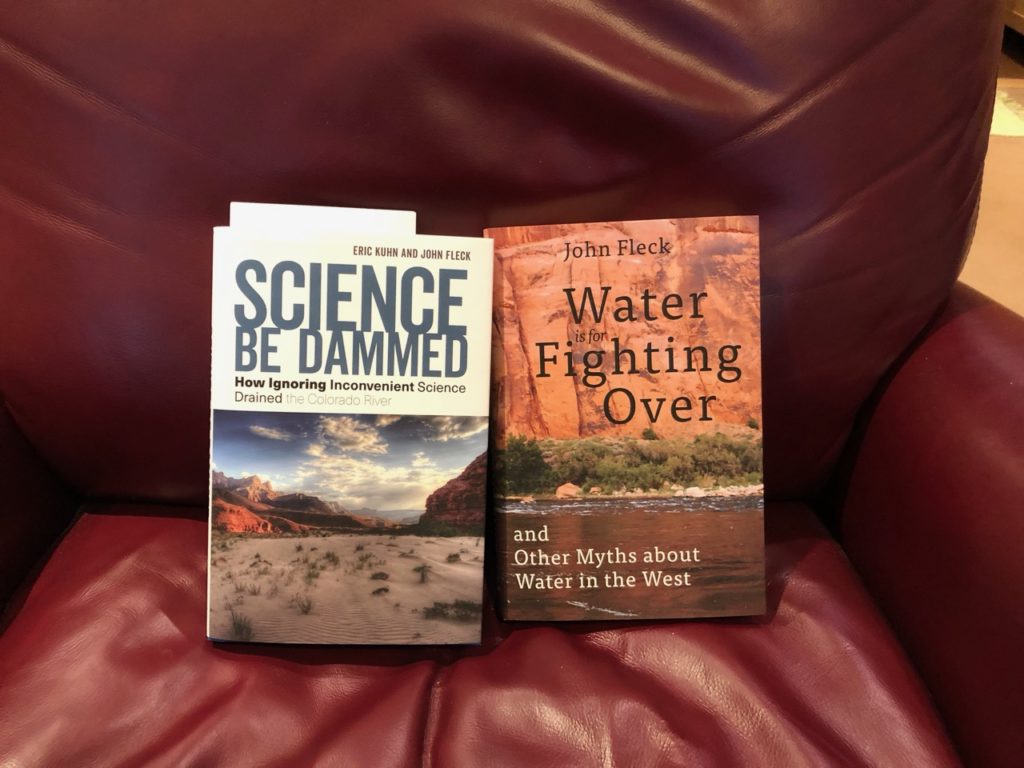
the siblings’ first meeting
My early review copy arrived yesterday, ahead of the “official” Nov. 26 publication of the new Eric Kuhn-John Fleck book Science Be Dammed: How Ignoring Inconvenient Science Drained the Colorado. River. I’ve got but one – I talked to Eric this morning up in Glenwood Springs, Colorado, (in the Upper Basin) and he’s got a couple of boxes’ worth. Package tracking suggests my box with another 20 left Las Vegas, Nevada, last night (so currently beating their escape from the Lower Basin!).
So excited. Three years’ work with Eric, trying to tell a story that we think is so very important to understanding how we got to where we are in the Colorado River Basin, and how a better understanding can help us navigate the tough times to come. From the book’s closing chapter:
When E. C. LaRue wrote in 1916, before the Colorado River Compact, before Hoover Dam, before all the development that was to follow, that “the flow of the Colorado River and its tributaries is not sufficient to irrigate all the irrigable lands lying within the basin,” he prefaced his observation with a caveat. “More complete data,” he wrote, “would probably indicate a greater shortage in the water supply available” (emphasis added).
Each of those points has largely been lost to the history on which our modern operational understanding of the Colorado River Basin is based. The first, as we have seen in the stories of LaRue, Stabler, Sibert, Tipton, G. E. P. Smith, Stockton and Jacoby, and the modern climate change scientists is surely the most important. There is simply less water in the system than the edifice of laws and policies and infrastructure was premised upon. But LaRue’s second point may be the more important—the need for humility in the face of uncertainty, and the crucial need to design that humility and uncertainty into the institutions we build to use and manage the river.
We hope you enjoy it.

Chicago distribution center mailed out mine on the 12th. The check is in the mail, however long USPS lets it be buried. The data for the ’23 Compact likely traveled faster, by train. Greg
But those institutions become cast in concrete, don’t they. And they become intransigent to change. They gain a life of their own and anchor their mission to past policies. The courts come to apply the Chevron Rule in the perpetuation of some past mission which leads to 100+ years of litigation. There are so many cases over water at present it is doubtful any clear path to their resolution will develop. Jurisdictions are pitted against one another trying to rectify and justify historical conflicts. Brings to mind that old refrain: “He’s riding around Boston on the MTA”
This is exciting! Congratulations to you both. I look forward to this book.
Major congrats! First book great and looking forward to this one as well.
Are you by any chance the John Fleck who worked at the Pasadena Star-News in the 1980s?
Valerie – That would be me!
I received mine yesterday. Thanks.